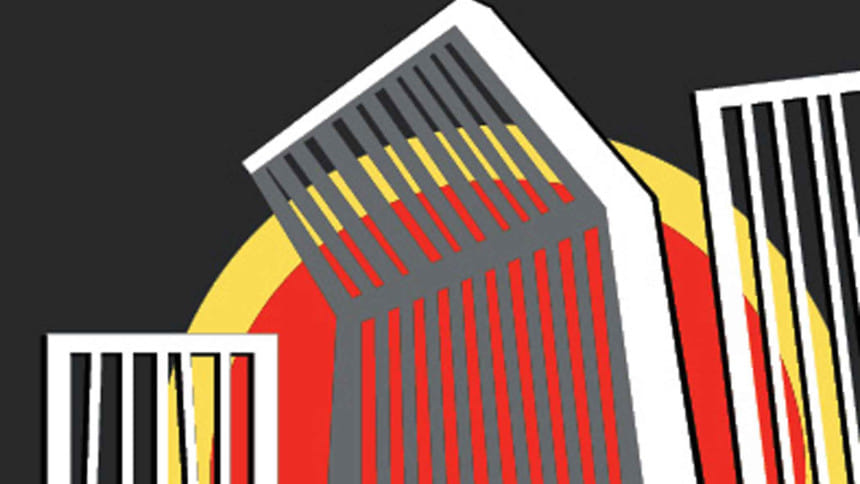Language Movement paved path for independence

Prime Minister Sheikh Hasina yesterday said the 1952 Language Movement had paved the path for achieving the independence of Bangladesh.
"In the history of the Bangalee's struggle for freedom, the Language Movement is very important. All our achievements came through this movement," she said while distributing the prestigious Ekushey Padak, the country's second highest civilian award, among the recipients.
The cultural affairs ministry organised the programme at the capital's Osmani Memorial Auditorium, with State Minister for Cultural Affairs KM Khalid in the chair. The PM joined the event virtually from the Gono Bhaban.
Briefly describing the contributions of Father of the Nation Bangabandhu Sheikh Mujibur Rahman to the Language Movement, Hasina said an Education Conference in Karachi in December 1947 had decided that Urdu would be the state language of Pakistan.
She mentioned that Bangabandhu formed Chhatra League on January 4, 1948 and the proposal for the Language Movement was adopted as per his proposal. "Basically, we attained our Independence through this struggle of the Father of the Nation, because he had launched his protest against those who attacked our language."
Following Bangabandhu's proposal, the "Sarbadaliya Rashtrabhasha Bangla Sangram Parishad" (All Party State Language Bangla Action Council) was formed at Fazlul Huq Hall of Dhaka University, comprising Chhatra League, Tamuddin Majlish and several other progressive student organisations in March (1948) for the movement to get the recognition of Bangla as a state language, the PM said.
She mentioned that the Bangalee nation attained independence under the leadership of Bangabandhu through long struggles starting from the Language Movement.
Quoting from Bangabandhu's speech delivered on February 21, 1971, Hasina said the Language Movement was not only to establish the rights of mother tongue, but also to achieve political, social, cultural and economic rights of the Bangalee nation.
She recalled the sacrifices of the great sons of the soil, including Rafique, Salam, Jabbar, Barkat and Shafique.
"If anyone is interested to know about the details of the Language Movement, I will request him to go through the Pakistan Intelligence Branch reports on Bangabandhu from 1948 to 1971. We are publishing those in books. Seven volumes have already been published while the remaining ones are under the process of publication."
The secret documents of the Intelligence Branch on Bangabandhu Sheikh Mujibur Rahman are being published in 14 volumes.
The premier said, "We have attained our Independence going through many struggles and movements, and this attainment of independence is the most important one [in our history]."
Hasina mentioned that every achievement of the country has been attained through movement and struggle. "No one gave us anything willingly."
She reiterated her firm resolve that Bangladesh would go ahead at the world stage with dignity and holding its head high, and it will not depend on others.
Talking about the Covid-19 situation, the PM renewed her call to the people to follow health rules and wear masks even after taking vaccine.
Liberation War Affairs Minister AKM Mozammel Haque handed the Ekushey Padak to the recipients on behalf of the prime minister.
This year's winners of the award are: Motahar Hossain Talukdar (posthumous), Shamsul Haque (posthumous), and Afsar Uddin Ahmed (posthumous) (Language Movement), Begum Papia Sarowar (music), Raisul Islam Asad and Salma Begum Sujata (performing arts), Ahmed Iqbal Haidar (drama), Syed Salahuddin Zaki (film), Bhaskar Bandyopadhyay (recitation), Pavel Rahman (photography), Golam Hasnayen, Fazlur Rahman Khan Faruk, and Syeda Issabela (posthumous) (Liberation War), Ajay Dasgupta (journalism), Samir Kumar Saha (research), Mahfuza Khanam (education), Mirza Abdul Jalil (economics), Kazi Kamruzzaman (social service) and Kazi Rozy, Bulbul Chowdhury and Golam Murshid (language and literature).

 For all latest news, follow The Daily Star's Google News channel.
For all latest news, follow The Daily Star's Google News channel. 



Comments